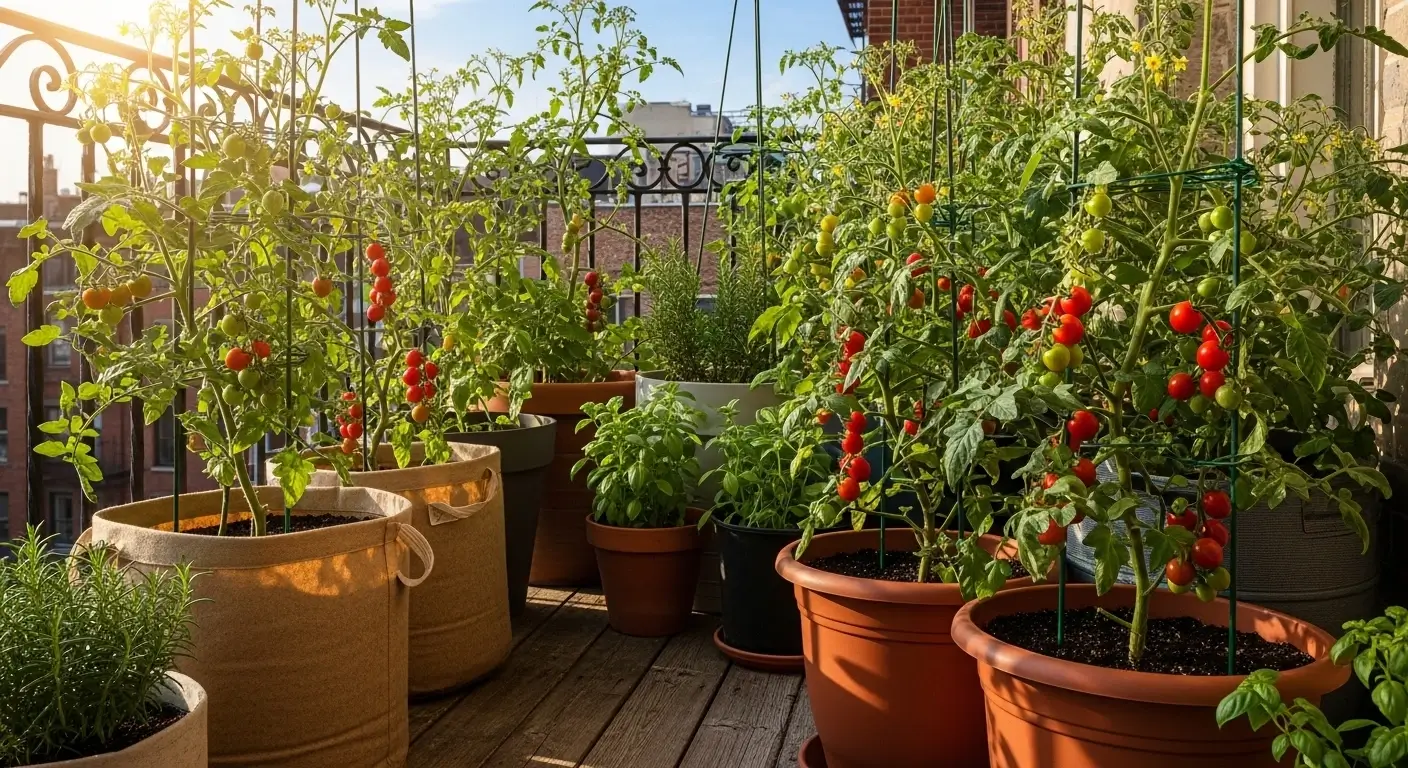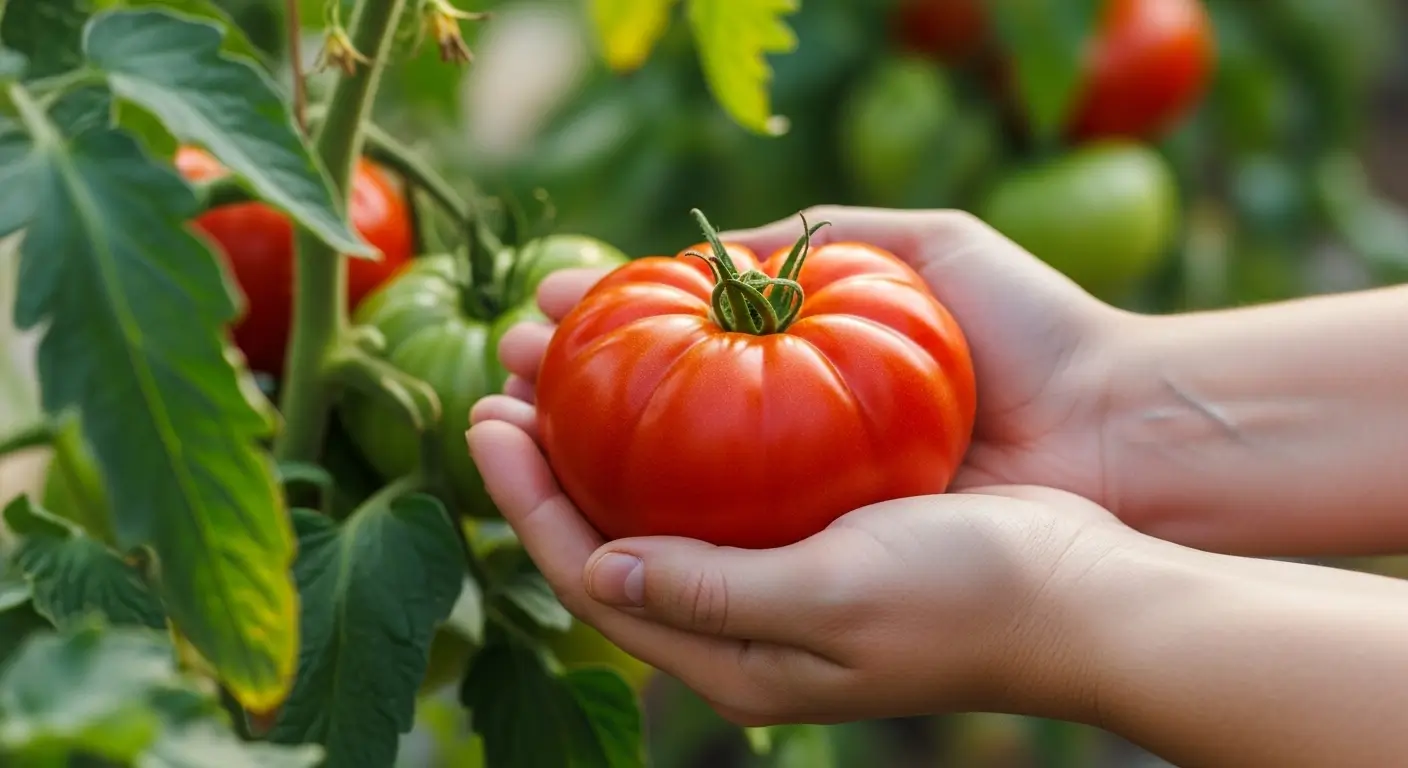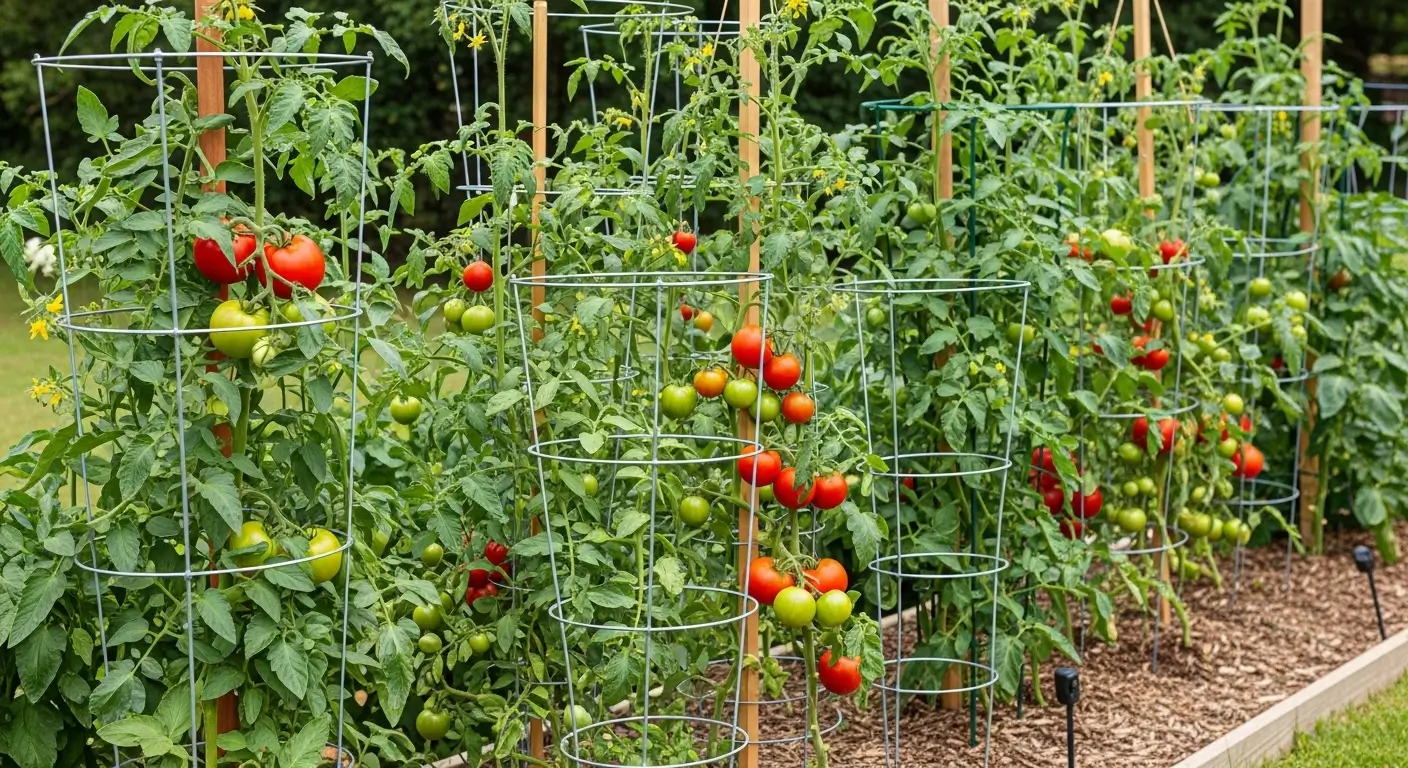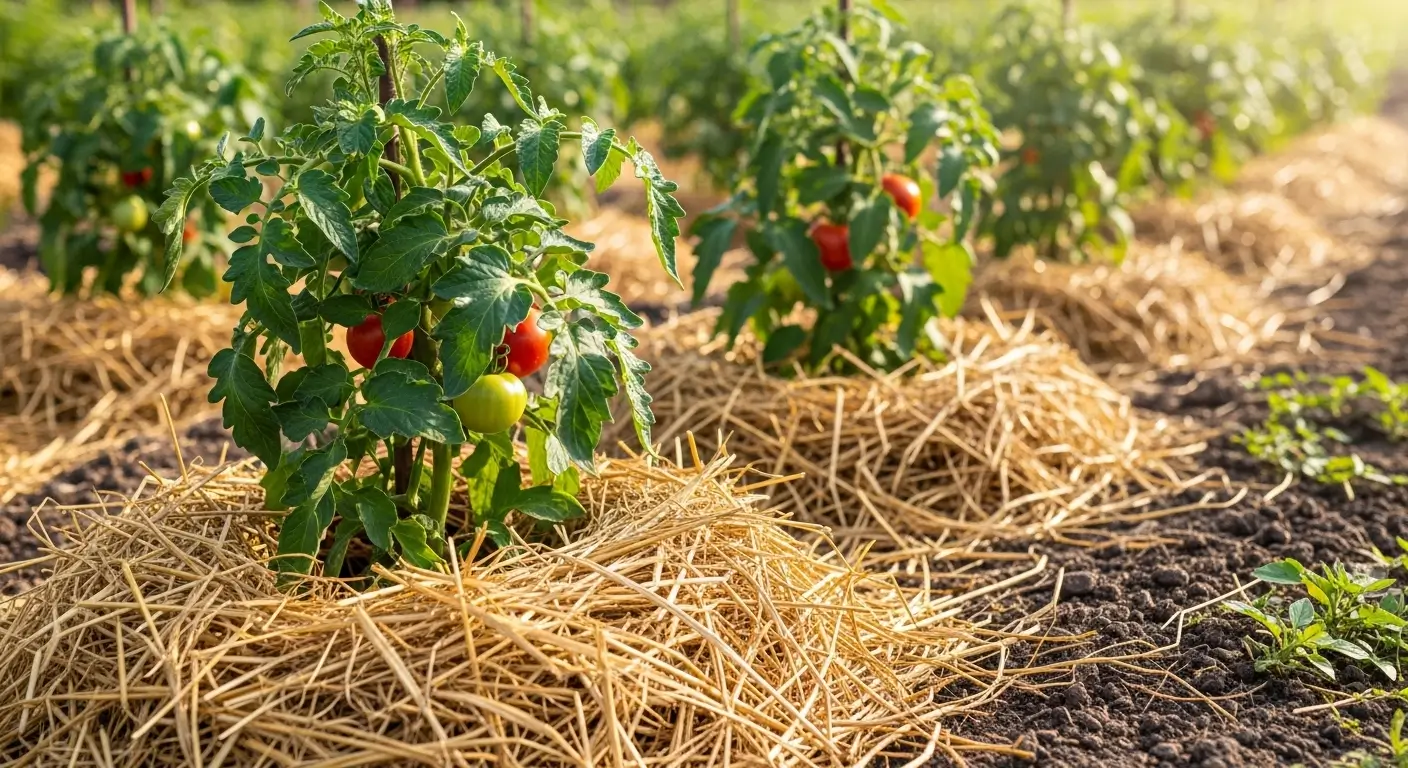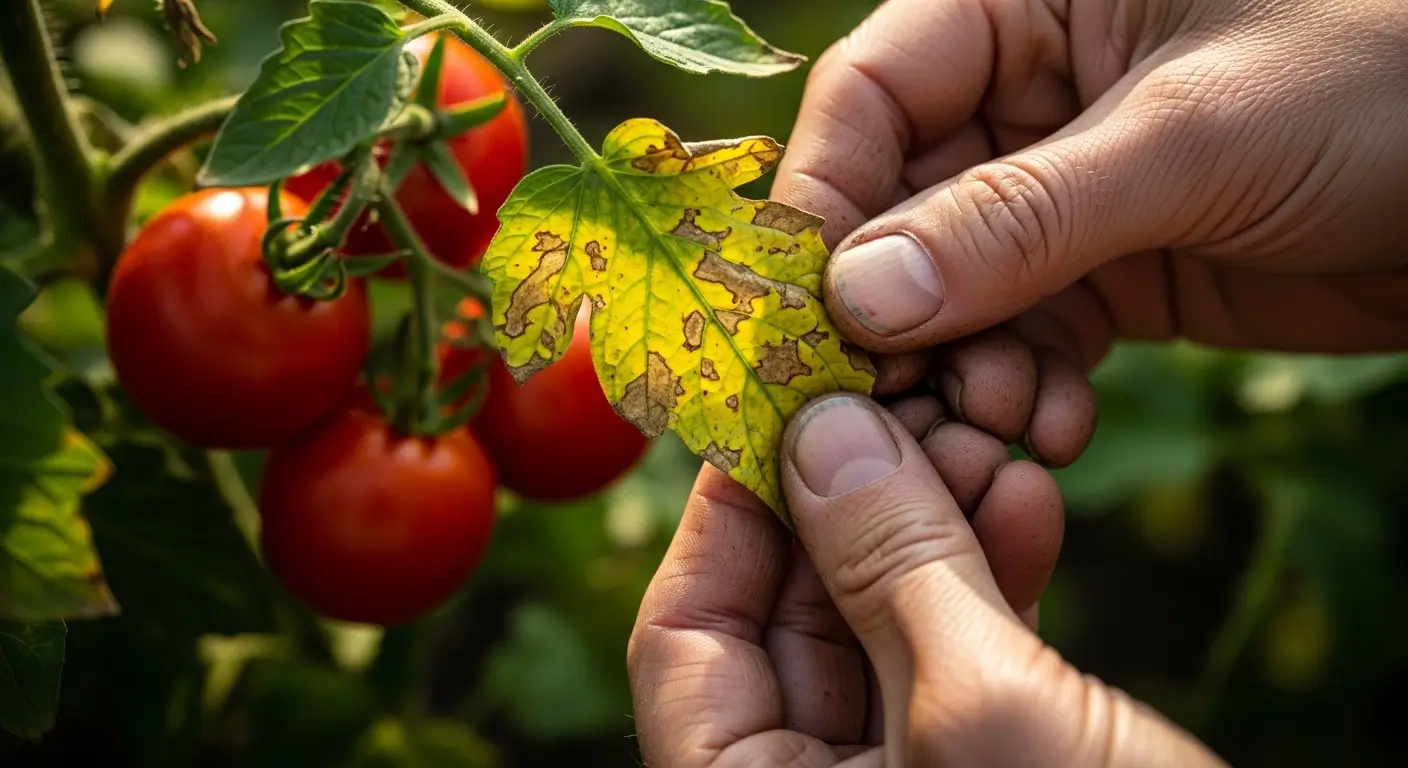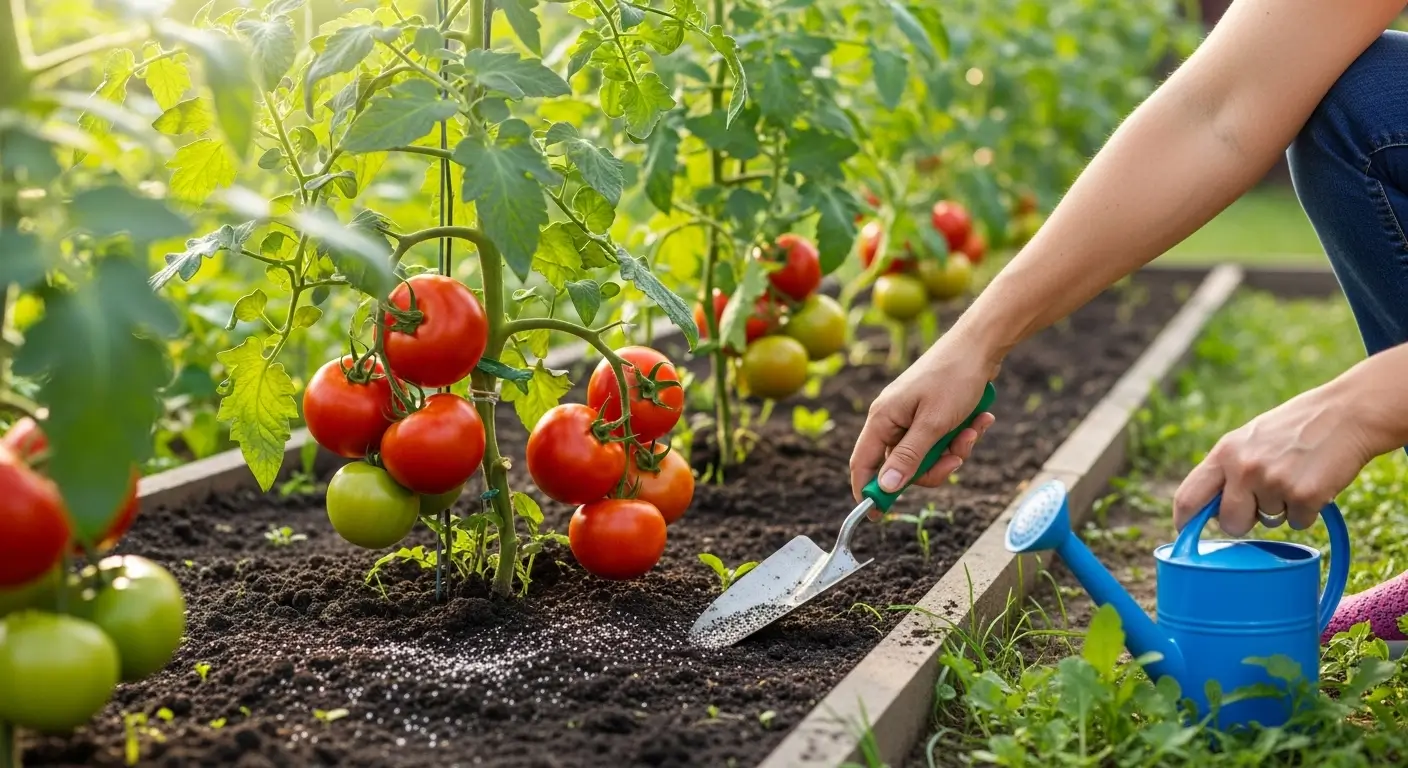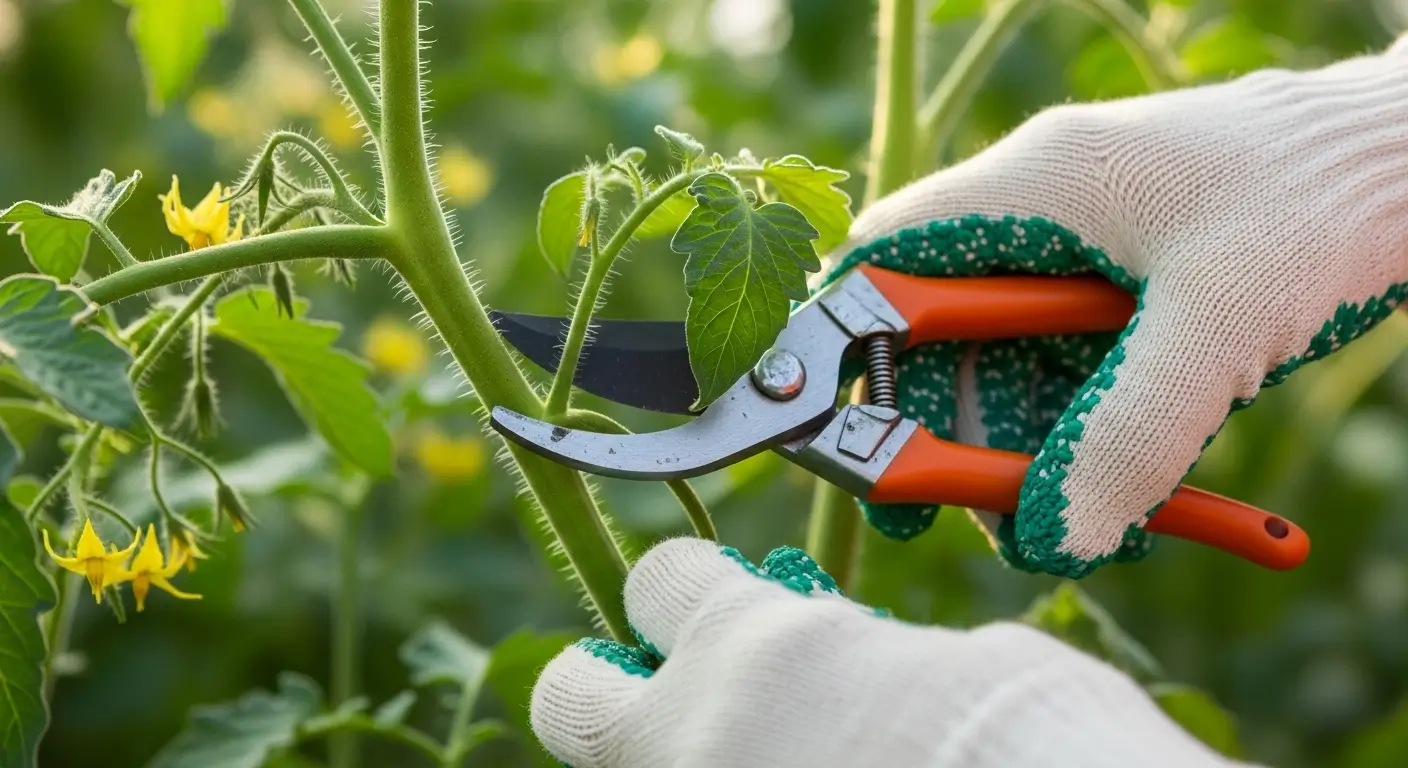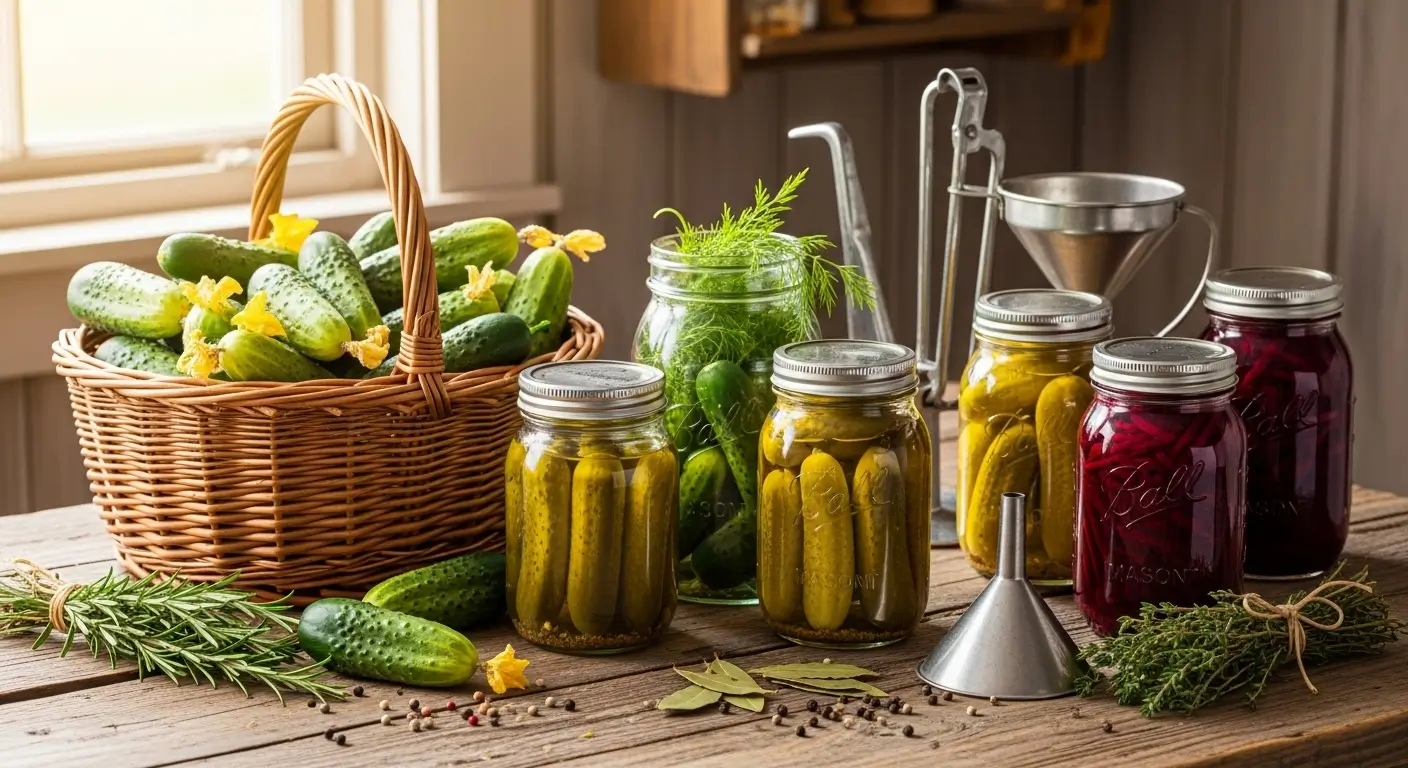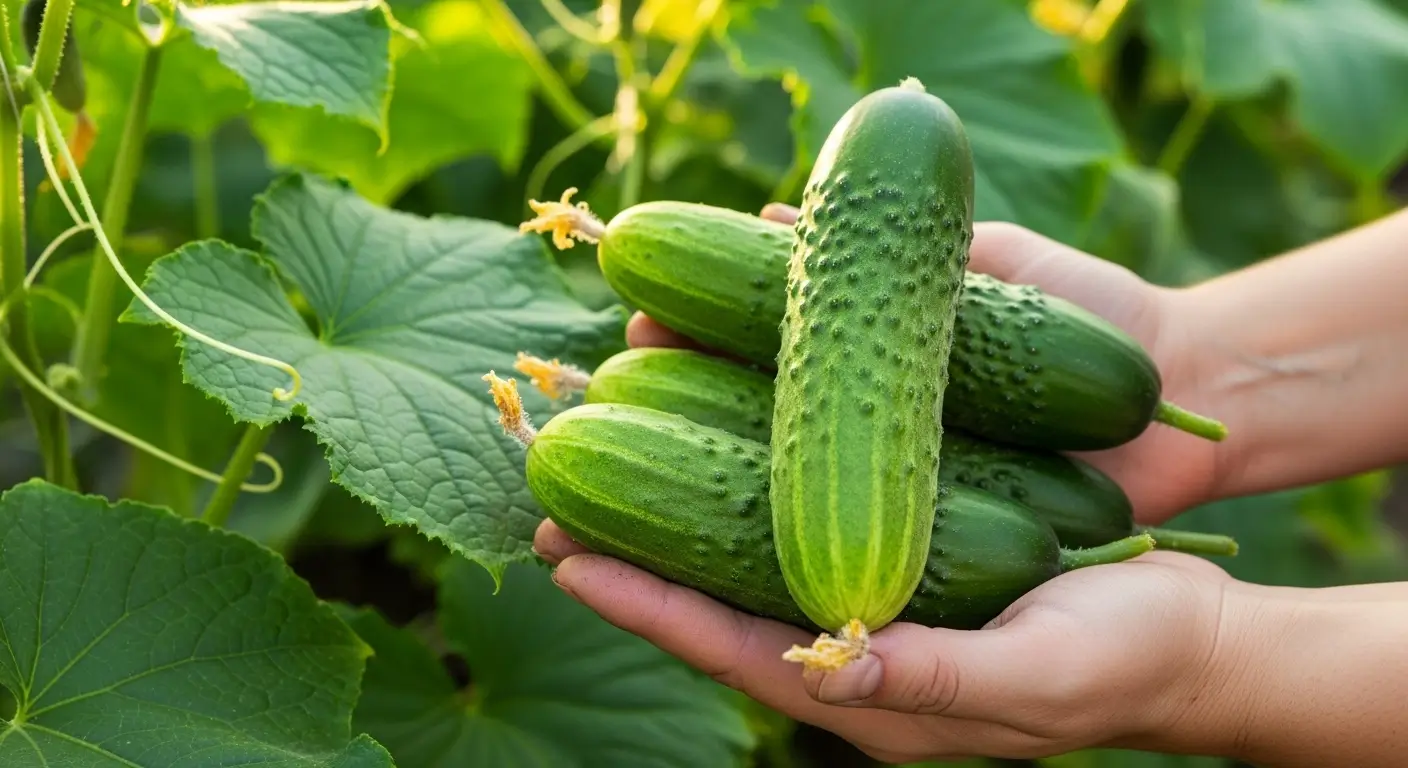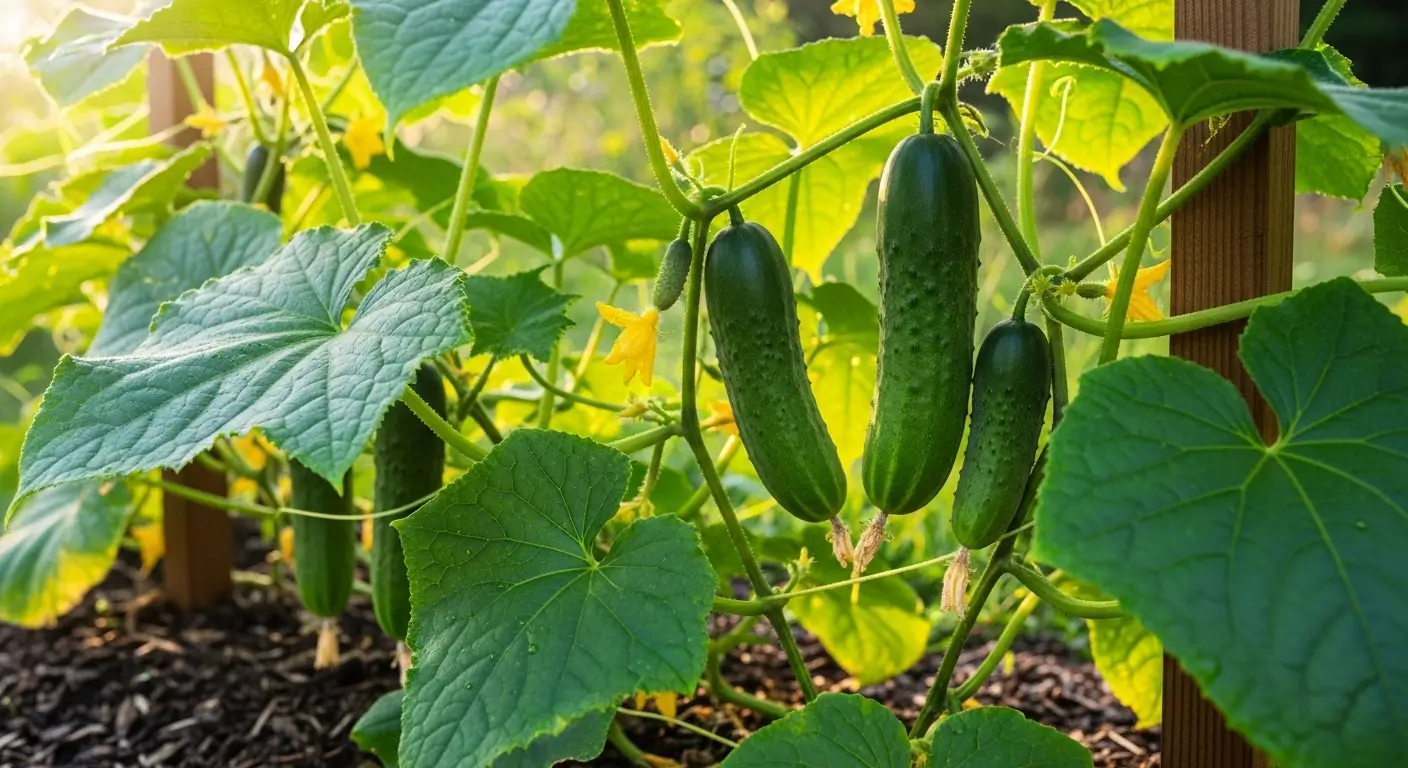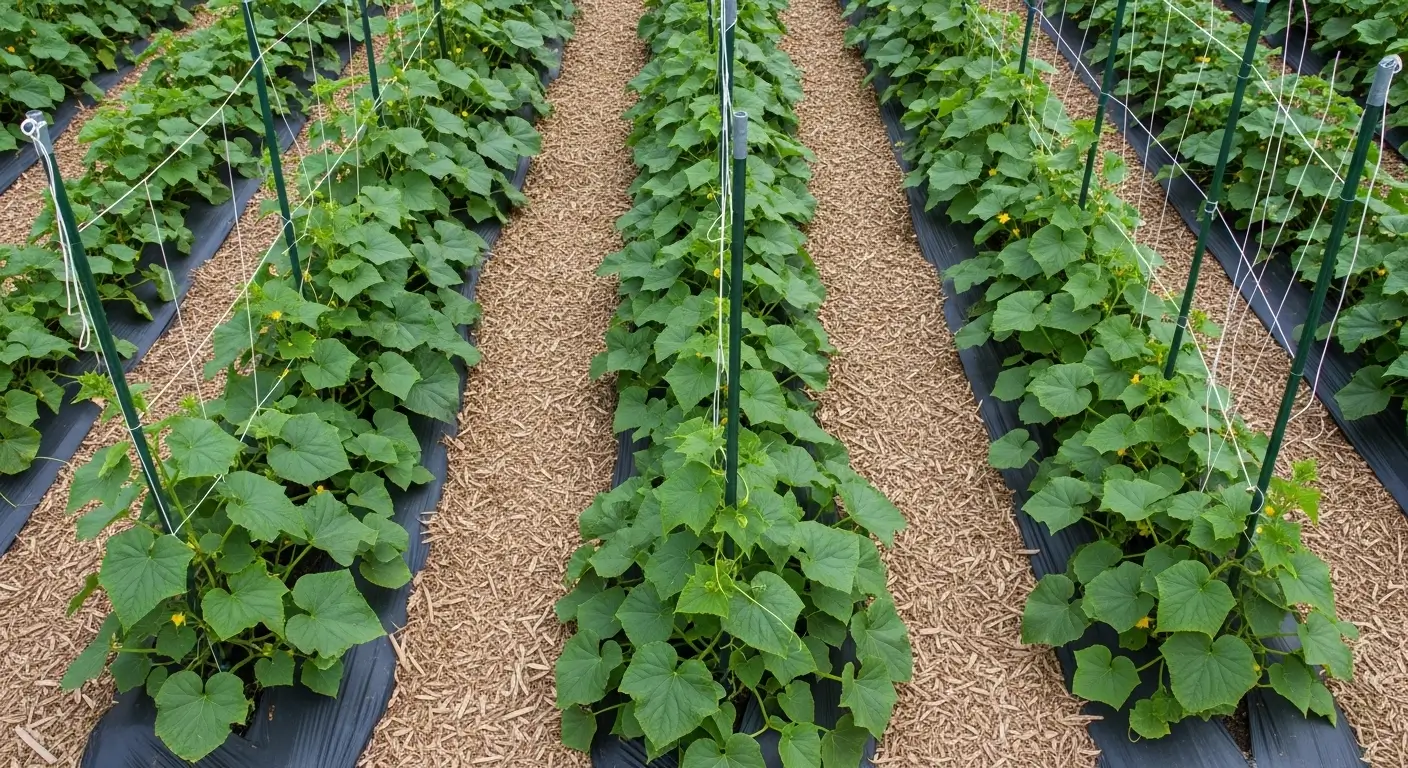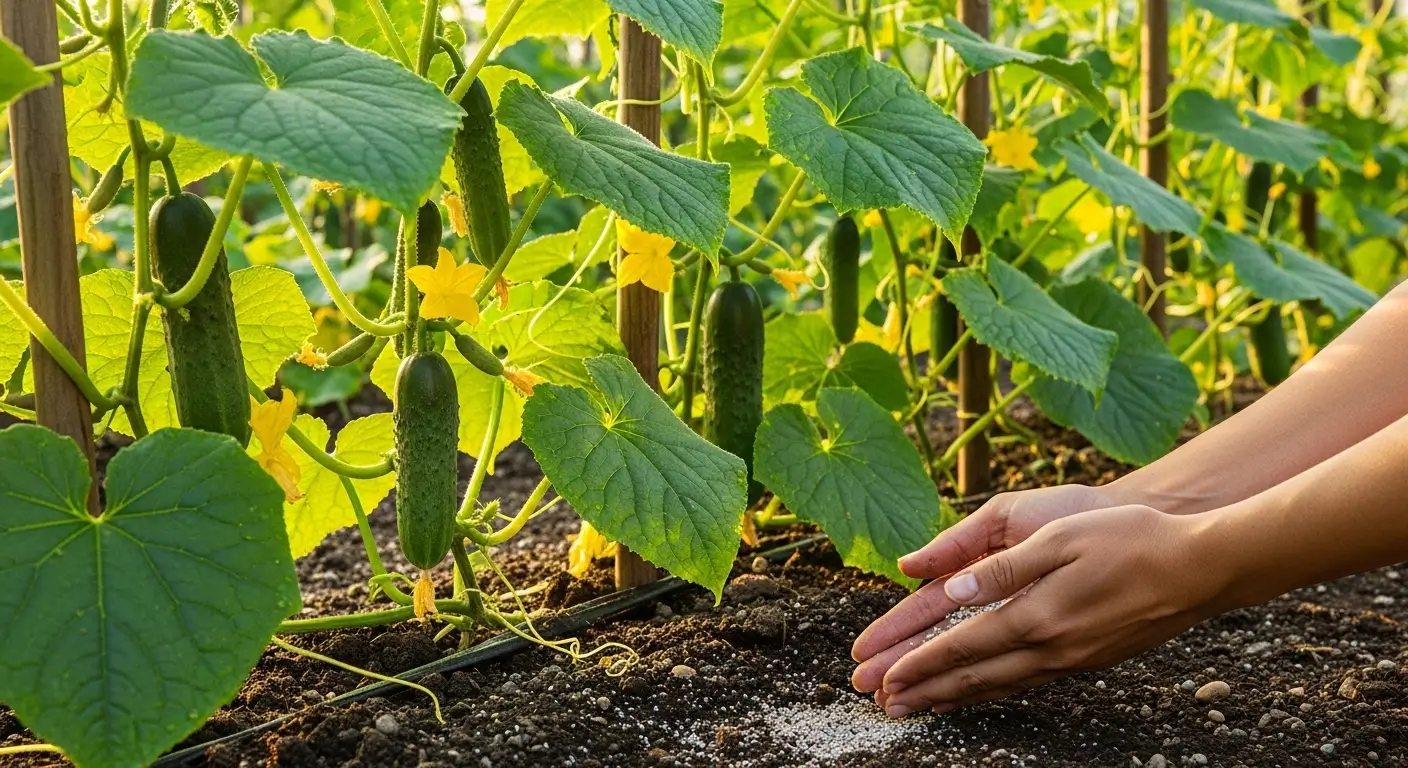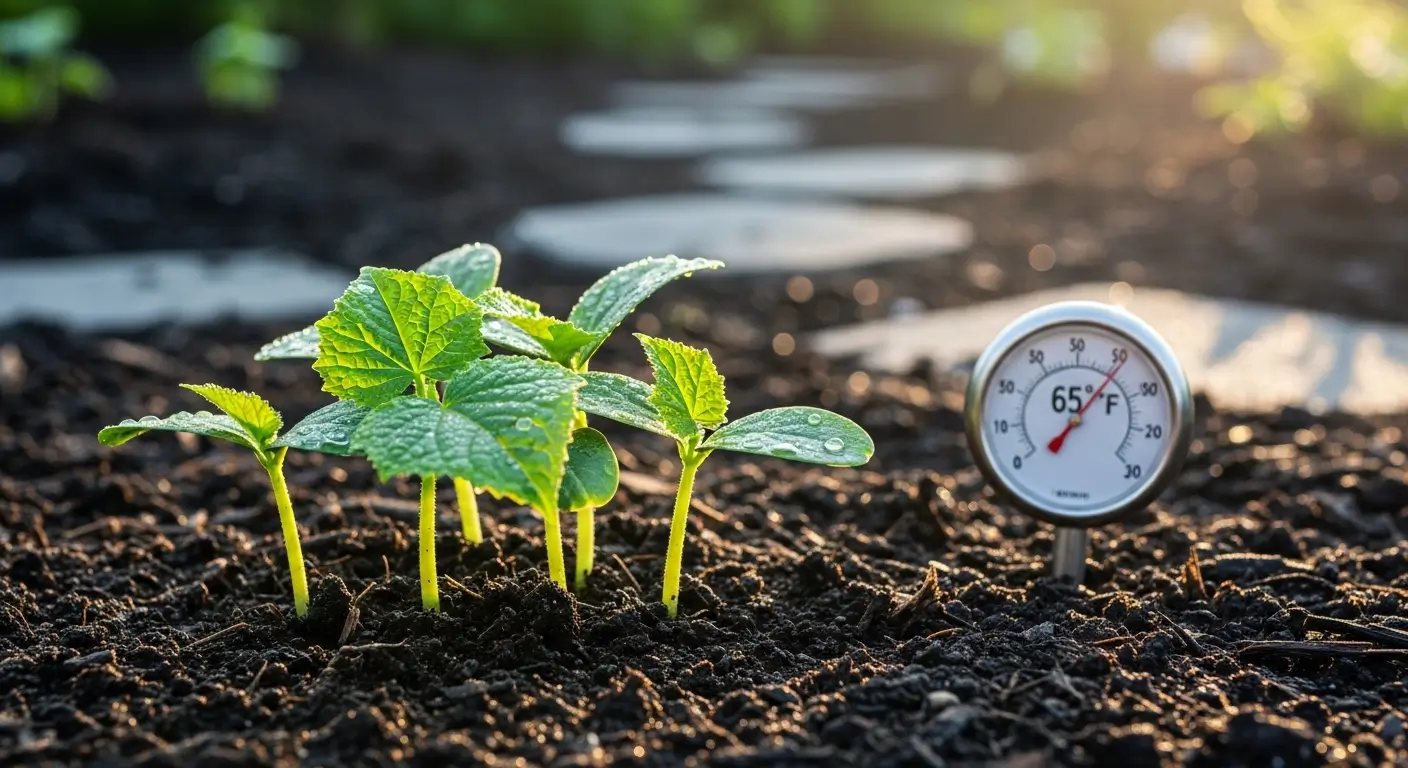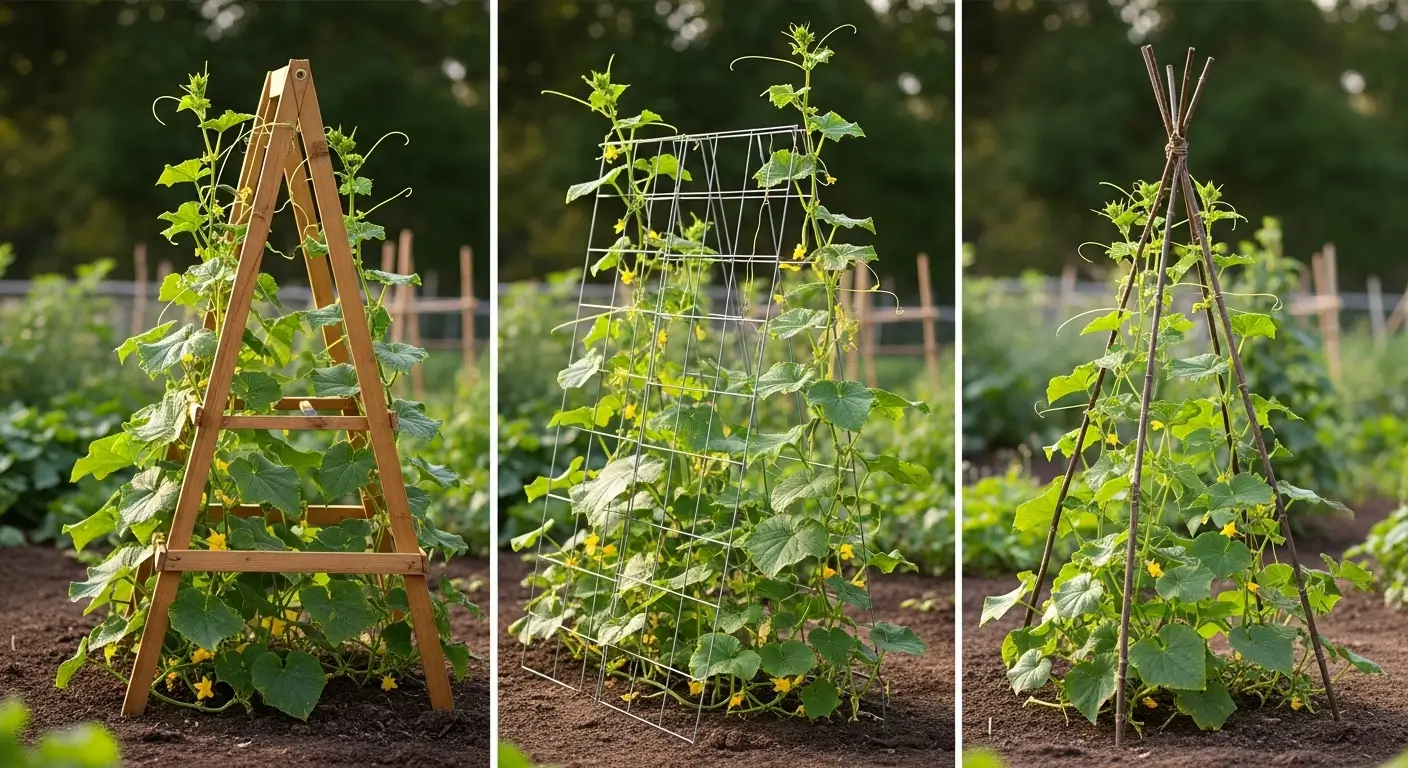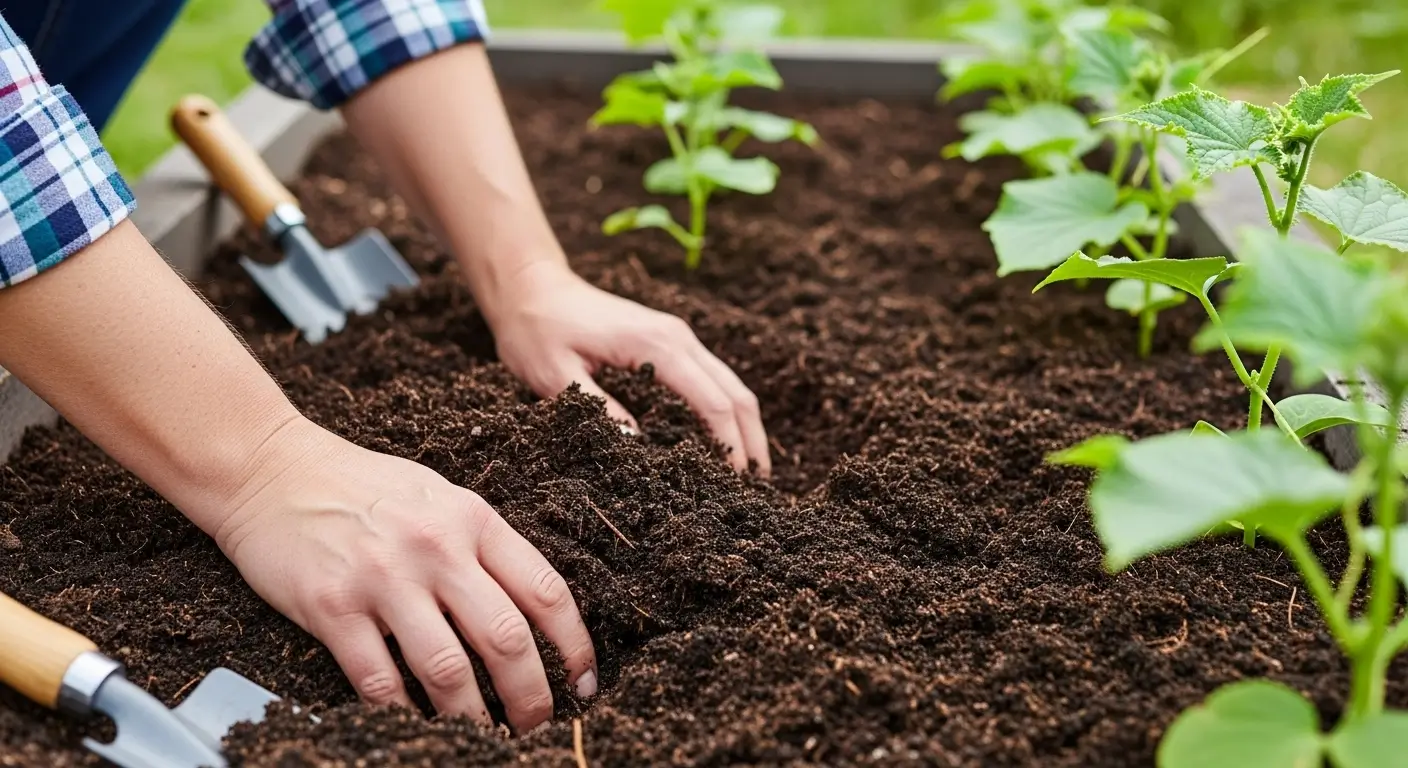You know what changed my entire perspective on gardening? Learning that growing tomatoes in containers was actually possible – and not just possible, but downright amazing! I used to think you needed acres of land or perfect soil to grow decent tomatoes, but I was wrong.
Picture this: me, staring at my tiny balcony with nothing but concrete and a dream of fresh tomatoes. Those flavorless grocery store ones were driving me crazy (seriously, why do they even bother?), and I was getting desperate. That’s when growing tomatoes in containers became my obsession, and honestly, it’s been the best gardening adventure I’ve ever had.
Whether you’re dealing with limited space, terrible soil, or want more control over your plants, container growing might be your perfect solution. And here’s the thing – once you bite into that first sun-warmed tomato you grew yourself on your patio or balcony, you’ll wonder why you waited so long to try it!
Table of Contents
Why Container Growing is a Game-Changer
Okay, so I’ve been growing tomatoes the traditional way for years, digging around in garden beds and all that. But container growing? It’s like gardening on easy mode, and I mean that in the best way possible.
First off, you get to be the boss of your soil. No more dealing with mystery dirt that’s either too sandy, clay-y, or just plain weird. You pick exactly what goes in there, and your plants will love you for it.
Plus, you can literally move your plants around! Hot day? Scoot them into some shade. Storm coming? Bring ’em closer to the house. It’s like having a mobile garden, which is cool if you ask me.
Can we talk about pests for a second? Those annoying little cutworms that love to munch on baby plants? Yeah, they can’t reach your containers as easily. I’ve watched my ground-level plants get demolished while my container tomatoes are just chilling up there, totally safe. It’s almost unfair how much easier it is.
Choosing the Best Containers for Tomatoes
Alright, here’s where I see people always mess up – they think tomatoes are happy in tiny pots. Nope, not gonna happen. I learned this the hard way when I stuffed a giant tomato plant into what was basically a bucket. Poor thing looked absolutely miserable all summer long.
Size Matters (A Lot)
So here’s the deal – if you’re going with those compact, bushy tomato varieties (the determinate ones), you need at least a 10-15 gallon container. That’s like… really big. Way bigger than you think.
And if you want those tall, sprawling plants (indeterminate types)? We’re talking 20-25 gallons minimum. I know, it sounds massive, but think of it this way – happy roots equal tons of tomatoes. Trust me on this one.
Feeling a bit overwhelmed by all the container size talk? I totally get it! When I was starting out, I spent way too much time second-guessing myself at the garden center. That’s why I put together this little tool to help you figure out exactly what size containers you need based on your specific situation:
Pretty helpful, right? I wish I’d had something like this when I was cramming that poor ‘Better Boy’ into a bucket that was way too small. Now let’s talk about what those containers should actually be made of.
Material Considerations
Plastic containers are my go-to. They’re light enough that I can actually move them around without throwing out my back, and they keep the soil from drying out too fast. Perfect for those crazy hot summer days.
Fabric grow bags have become my secret obsession lately. They’re like the yoga pants of the gardening world – comfortable, practical, and work. The roots can breathe, they don’t get all twisted up, and you can literally fold them up and store them when winter hits.
Pretty ceramic pots look amazing in photos, but let me tell you – they’re heavy as heck and dry out faster than you can say “wilted tomato.” If you’re set on using them, maybe put a plastic pot inside? Best of both worlds.
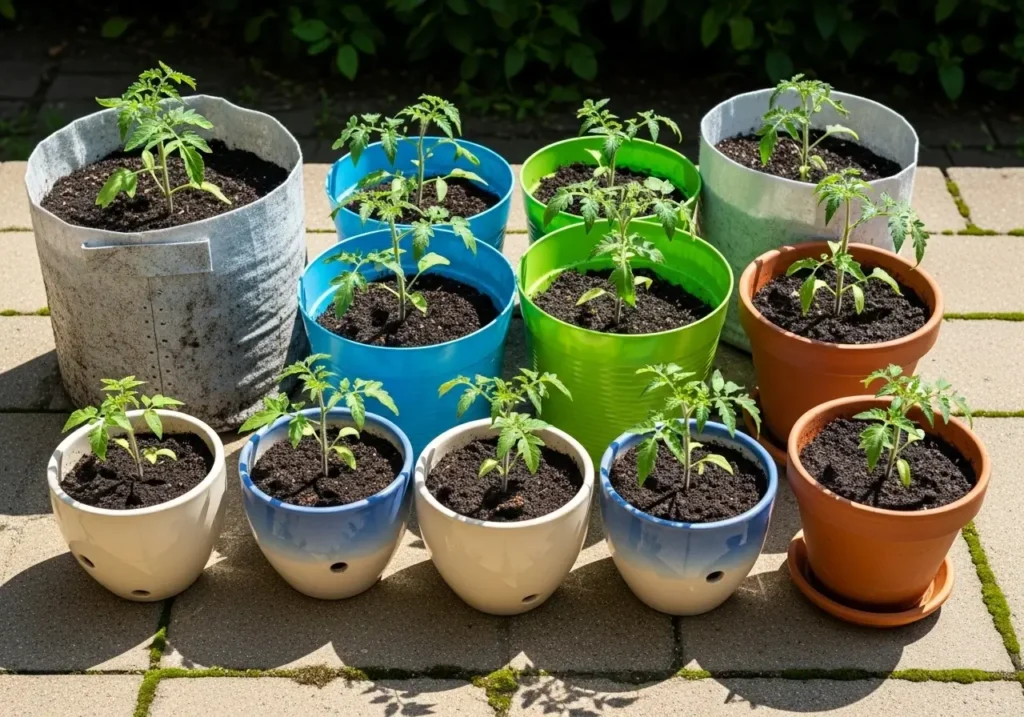
Drainage is Non-Negotiable
This is probably the most important thing I will tell you – drainage holes are EVERYTHING. Tomatoes hate having wet feet more than I hate doing laundry. I’ve killed more plants with too much water than not enough, and it’s heartbreaking every time.
If you find the perfect container, but it doesn’t have holes? Grab a drill and make some. Your tomatoes will literally thank you (okay, they won’t actually talk, but you know what I mean).
Growing Tomatoes in Pots: The Foundation
Soil Selection: Don’t Skimp Here
Here’s a rookie mistake I really don’t want you to make – using regular garden soil in containers. It’s like trying to wear jeans that are three sizes too small. Everything gets all compacted and weird, and your plants can’t breathe.
Get yourself some good potting mix made for containers. I like mixing things up: two parts decent potting soil, one part compost (the good stuff), and throw in some perlite to keep things fluffy. It’s like making a smoothie, but for plants.
The Planting Process
This is gonna sound crazy, but when I transplant my little tomato babies, I bury them deep. Like, really deep – sometimes two-thirds of the stem goes underground. I know it looks dramatic, but tomatoes grow roots all along their stems, so you’re giving them superpowers.
Container Gardening Tips for Tomato Success
Location, Location, Location
Tomatoes are basically sun addicts. They need at least 6-8 hours of direct sunlight daily to be happy and productive. I tried growing them in a shadier spot once (spoiler alert: total disaster). The plants got all leggy and produced maybe three sad little tomatoes all season.
I spent a whole day on my balcony just watching where the sun goes, like some solar stalker. Now I know exactly where to put my pots for maximum sun exposure. Pro tip: containers are portable, so use that to your advantage!
Watering: The Art of Consistency
Watering container tomatoes is honestly like walking a tightrope. Too much and they get root rot, too little and they get all stressed out and bitter. I stick my finger right into the soil about two inches down – if it’s dry, it’s time to water.
During the summer, I’m out there basically every day with the watering can. On really hot days? Sometimes twice. My neighbor taught me this nifty trick – put some mulch on top of the soil to keep everything moist and cool. Works like a charm.
Support Systems That Actually Work
Even the smaller tomato plants need something to lean on, and the big ones? They absolutely need support, or they’ll flop over like they’ve given up on life.
Here’s the thing, though – put your cages or stakes in when you plant. After trying to stake a full-grown plant and performing surgery on the roots, I learned this lesson. Not fun for anyone involved.
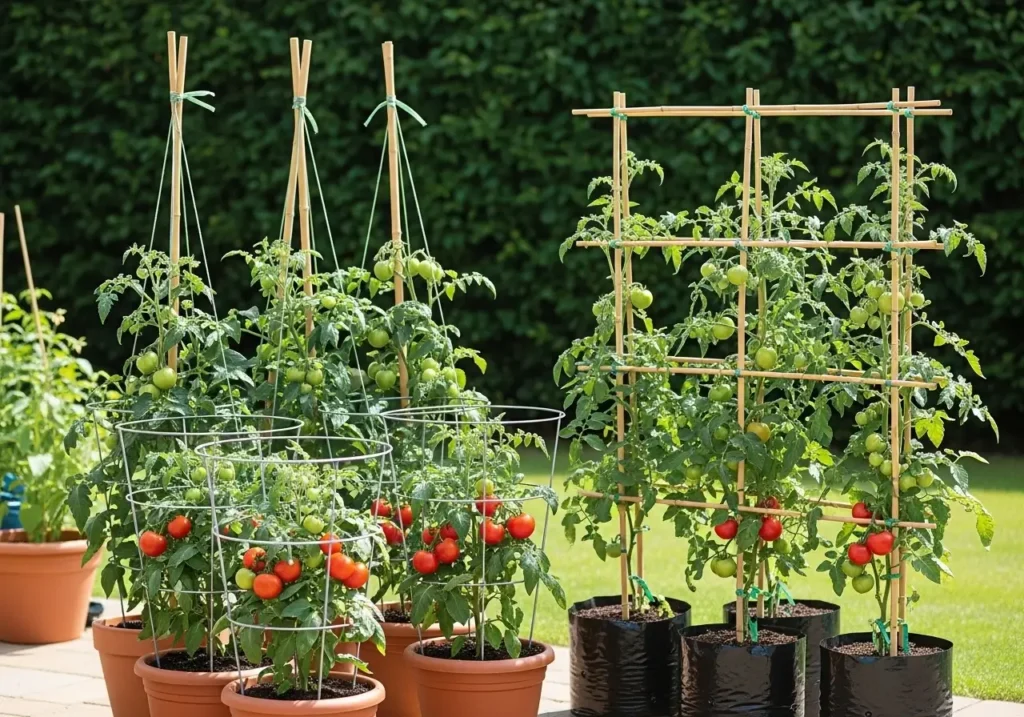
Variety Selection: Choosing Your Champions
Not all tomatoes are cut out for container life, and I’ve learned this through some spectacular failures. But I’ve also found some absolute rock stars who never disappoint me.
Best Varieties for Container Growing
Cherry tomatoes are like the golden retrievers of the tomato world – they’re just happy to be there, and they produce like crazy. ‘Sweet 100’, ‘Sun Gold’, and ‘Black Cherry’ have been my faithful companions for years.
Those compact varieties like ‘Patio Princess’ and ‘Bush Early Girl’ are made for containers. They stay friendly and manageable, and you still get full-sized tomatoes.
If you’ve got space for the big containers, indeterminate varieties like ‘Cherokee Purple’ and ‘Brandywine’ are absolutely worth it. They take up more room, but the flavor? Chef’s kiss
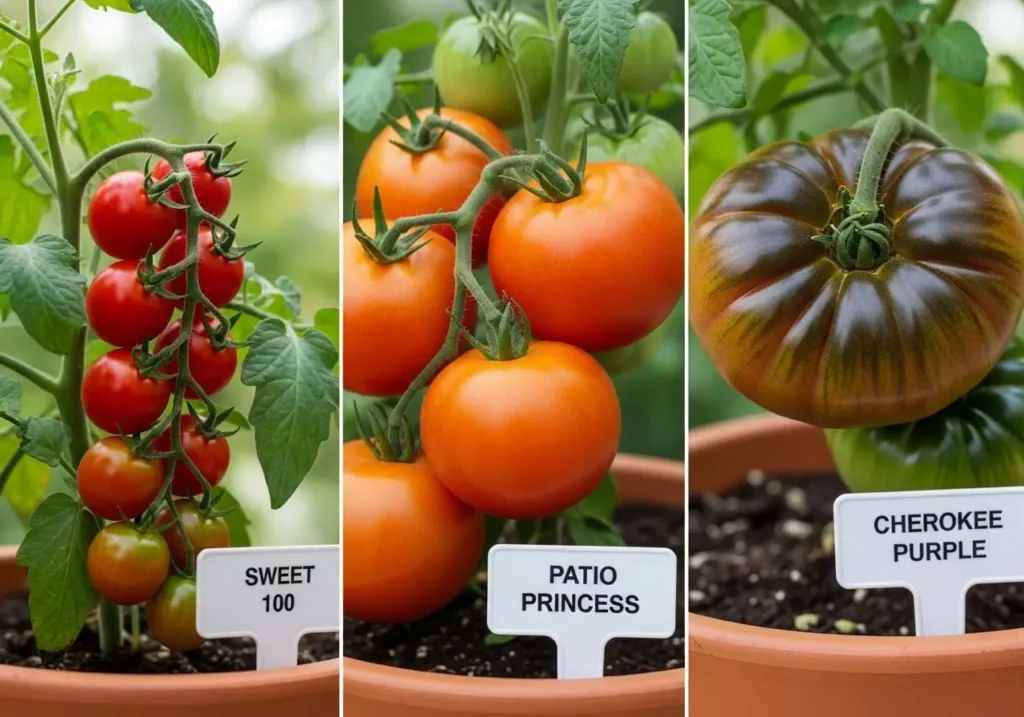
Feeding Your Container Tomatoes
Since your plants live in pots, they depend on you for food. No foraging for nutrients like their garden-bed cousins. I start with some slow-release fertilizer mixed right into the soil when I plant.
Once they start flowering, I switch to feeding them weekly with liquid fertilizer that’s got more phosphorus and potassium. Think of it as switching from breakfast cereal to protein bars when working out.
Keep an eye out for yellowing leaves (usually means they need more nitrogen) or those gross black spots on the bottom of tomatoes (blossom end rot – usually a watering or calcium issue).
For detailed information about tomato nutrition and troubleshooting common problems, the University of New Hampshire Extension provides an excellent comprehensive resource on tomato growing.
Common Challenges and Solutions
The Watering Balancing Act
This is honestly the trickiest part of container growing. It’s like being a plant bartender – too much and they’re drowning, too little and they’re dying of thirst.
Bigger containers are definitely more forgiving because they don’t dry out as fast. If you’re struggling with this, those self-watering containers are fantastic, or you can add some water-retention crystals to your soil mix.
Heat Stress Management
Container plants cannot escape the heat like ground plants can. During those brutal summer heat waves, I actually move my containers so they get morning sun but afternoon shade. It’s like giving them a little air conditioning break.
Light-colored pots reflect heat way better than dark ones. If you’re stuck with black pots, try wrapping them in something reflective or sticking them inside bigger, lighter-colored containers.
Pest and Disease Prevention
Good airflow is your best friend here. Don’t crowd all your containers together like they’re at a plant party. Give them some space to breathe.
I’m a big fan of letting beneficial bugs do the pest control for me. And planting basil in the same container? It saves space, but it might help keep some pests away. Plus, fresh basil and tomatoes together? You’re basically halfway to caprese salad.
Key Takeaways for Container Tomato Success
So here’s the bottom line – growing tomatoes in containers successfully really comes down to getting the basics right: big enough containers, good soil that drains well, consistent watering and feeding, lots of sun, and something for them to climb on.
The best part about container gardening is that you’re in control of everything. You can create the perfect environment, move things around when needed, and even extend your growing season by protecting plants when the weather gets nasty.
Look, I’m not gonna lie – you’ll probably kill a few plants while learning. I definitely did. It’s like a rite of passage or something. For more detailed info about growing tomatoes in general, check out our complete growing tomatoes guide – it has tons of extra tips and tricks.
Your Tomato Container Journey Starts Now
Container growing has seriously opened up so many possibilities for people who thought they couldn’t garden because of space issues. I hope this guide gives you the confidence to give it a shot – there’s nothing quite like walking out to your balcony and picking ingredients for dinner.
What’s your biggest worry about container gardening? Thinking about growing tomatoes in pots this year? I’d love to hear what you’re planning. If you’ve got questions, drop a comment and let’s chat about them!
